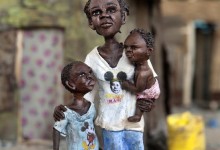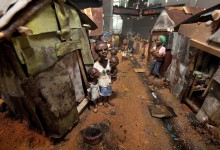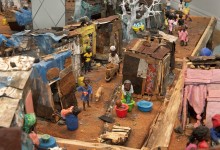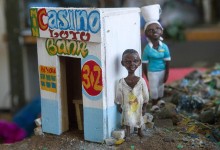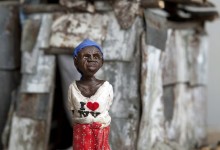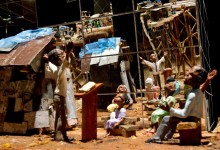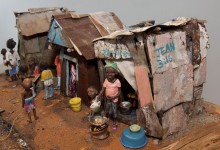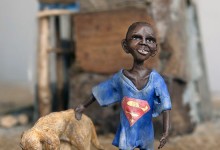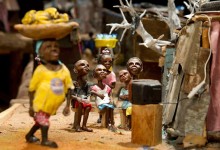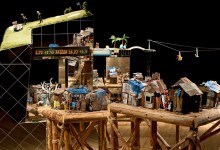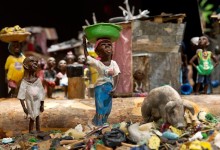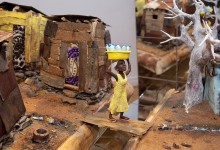After visiting the underworld of overconsumption in “Made in China” (All you can eat and Electronic Village, 2008), Giboulo gravitates to a different aspect of economic globalization and urbanization in this work: the uncontrolled growth of slums (principally in the Southern hemisphere and the East), where the statistics are alarming. As life in the country becomes increasingly difficult, the migration of their agrarian people to urban centers regularly transforms the hopes and dreams of rural dwellers into a second nightmare.
In truth, it is more accurate to speak of over-urbanization, of “slumization” – to borrow the term from the sociologist Mike Davis -, the result of a growing reality that, despite the continuing economic decline of Southern cities, unable to house and to employ all these migrants, the urban population explosion continues.
Village Démocratie is the name of a shantytown on the outskirts of Port-au-Prince (similar to Sun City). In all its irony, the name is analogous with Giboulo’s work and became the title of her next piece, which in some ways is a tribute to the people of this city, who welcomed the artist into their world and who shared small fragments of their lives with her.
The Haitians she met gave her material for long reflection and to continue to create. From the top of her Northern hemisphere she builds not a “mini Village Démocratie” exactly, but a global village which will bring together North and South, the opulence and hunger, featuring the contrast of two diametrically opposed realities, questioning and materializing the “invisible bond” that binds us all, one to the other. A site for the tragedy of the human condition, which she strings together and she universalizes. By juxtaposing it with imaginary, highly contrasted universes, she seeks to illustrate the bitter divide that separates us.





